Simulation of Industrial Control Systems: A Literature Review Report
VerifiedAdded on 2022/09/25
|5
|785
|20
Report
AI Summary
This report provides a comprehensive literature review on the simulation of Industrial Control Systems (ICS). It explores the use of testbeds for virtualization and security research, addressing the increasing threats of cyber-attacks. The review covers various studies, including the analysis of cyber-physical production testbeds and their role in assessing system vulnerabilities. It highlights the importance of simulation in optimizing industrial processes and addresses knowledge gaps in ICS architecture, emphasizing the need for robust security measures to prevent cyber-attacks and ensure efficient production systems. The report emphasizes the critical role of ICT-based ICS in delivering real-time information and enabling intelligent control, advocating for simulation and virtualization using testbeds under optimal conditions. The report references several key studies, highlighting the importance of simulation and virtualization in the context of ICS security and optimization. The report also discusses the current vulnerabilities of ICS systems and the importance of addressing these vulnerabilities to prevent cyber-attacks.
1 out of 5
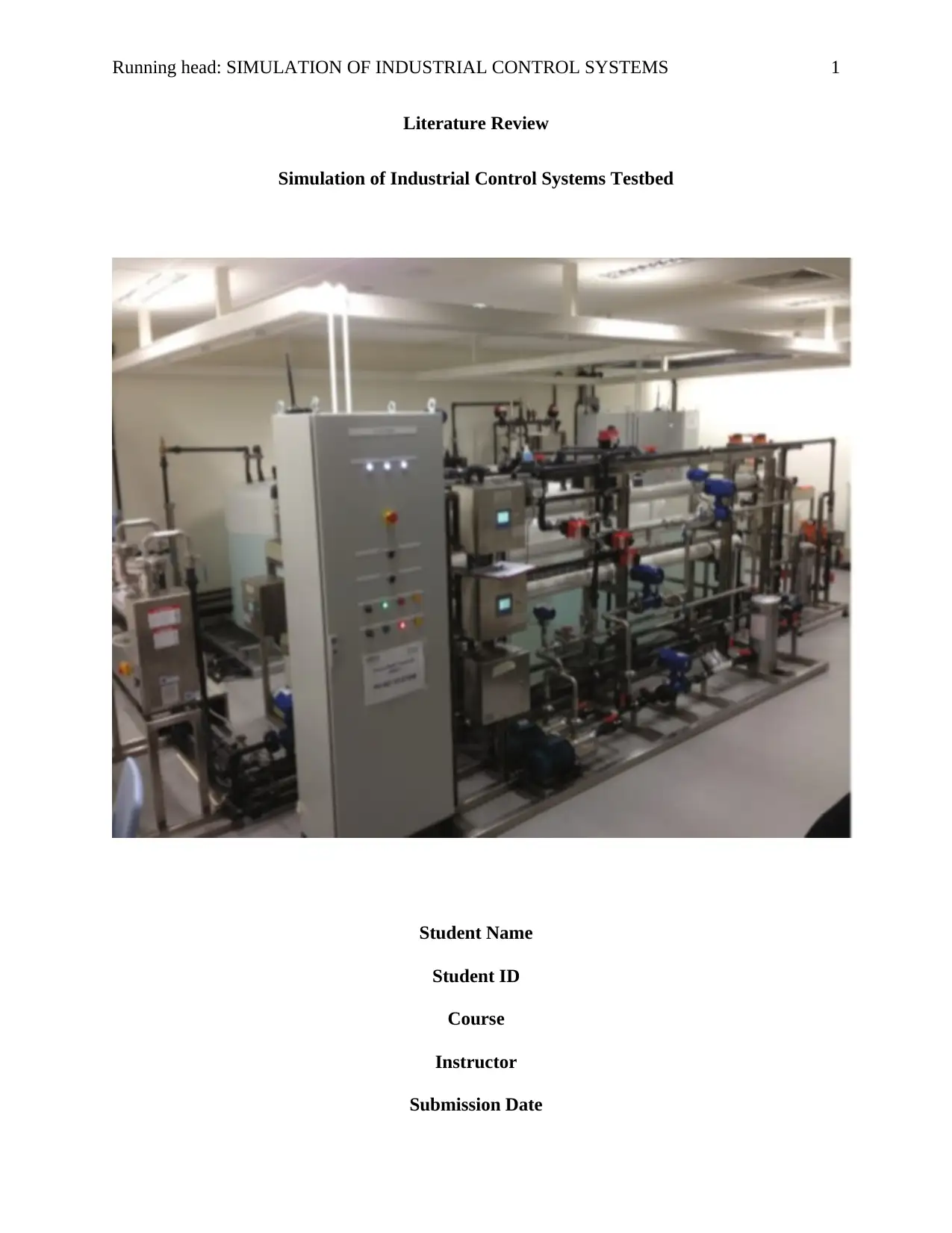
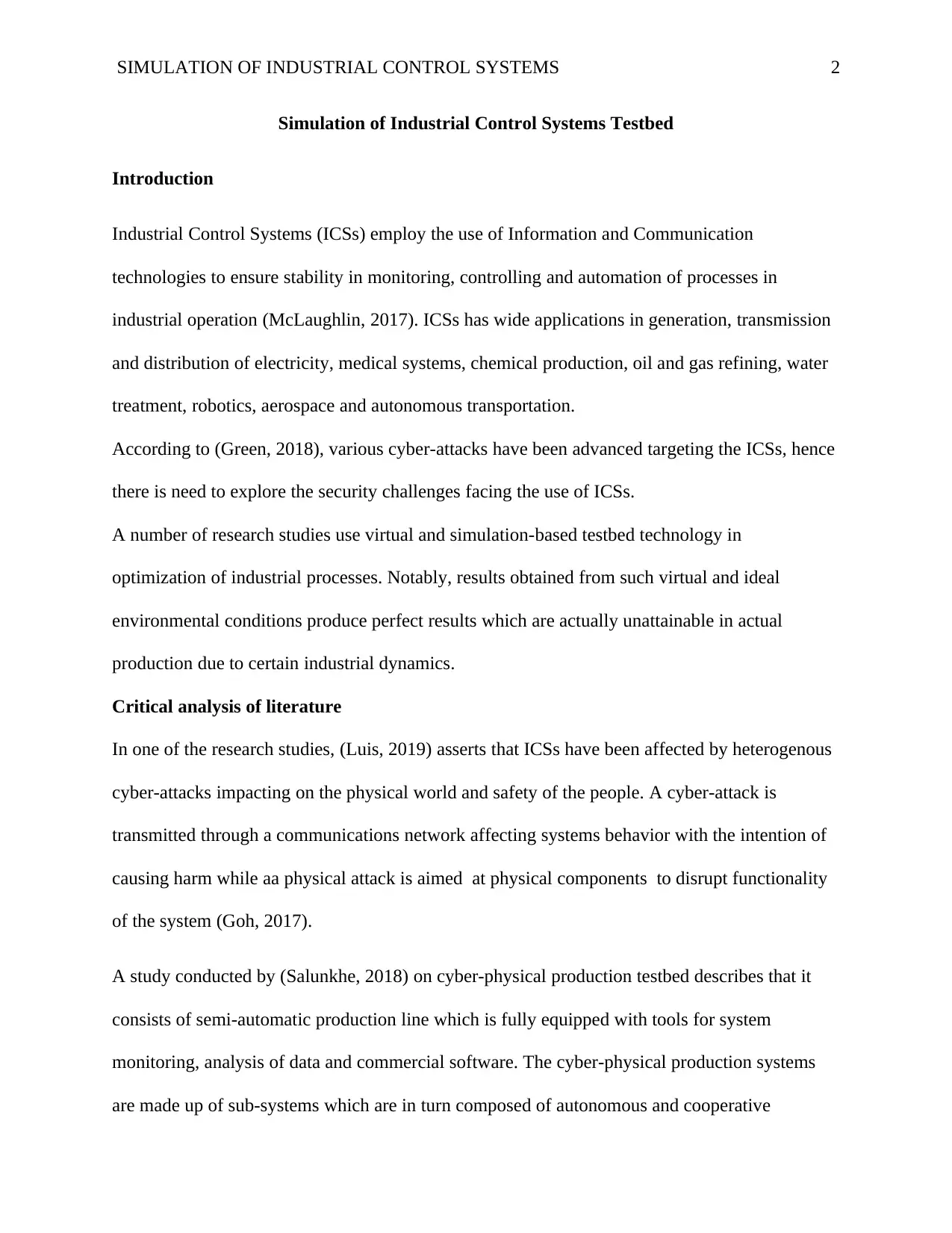
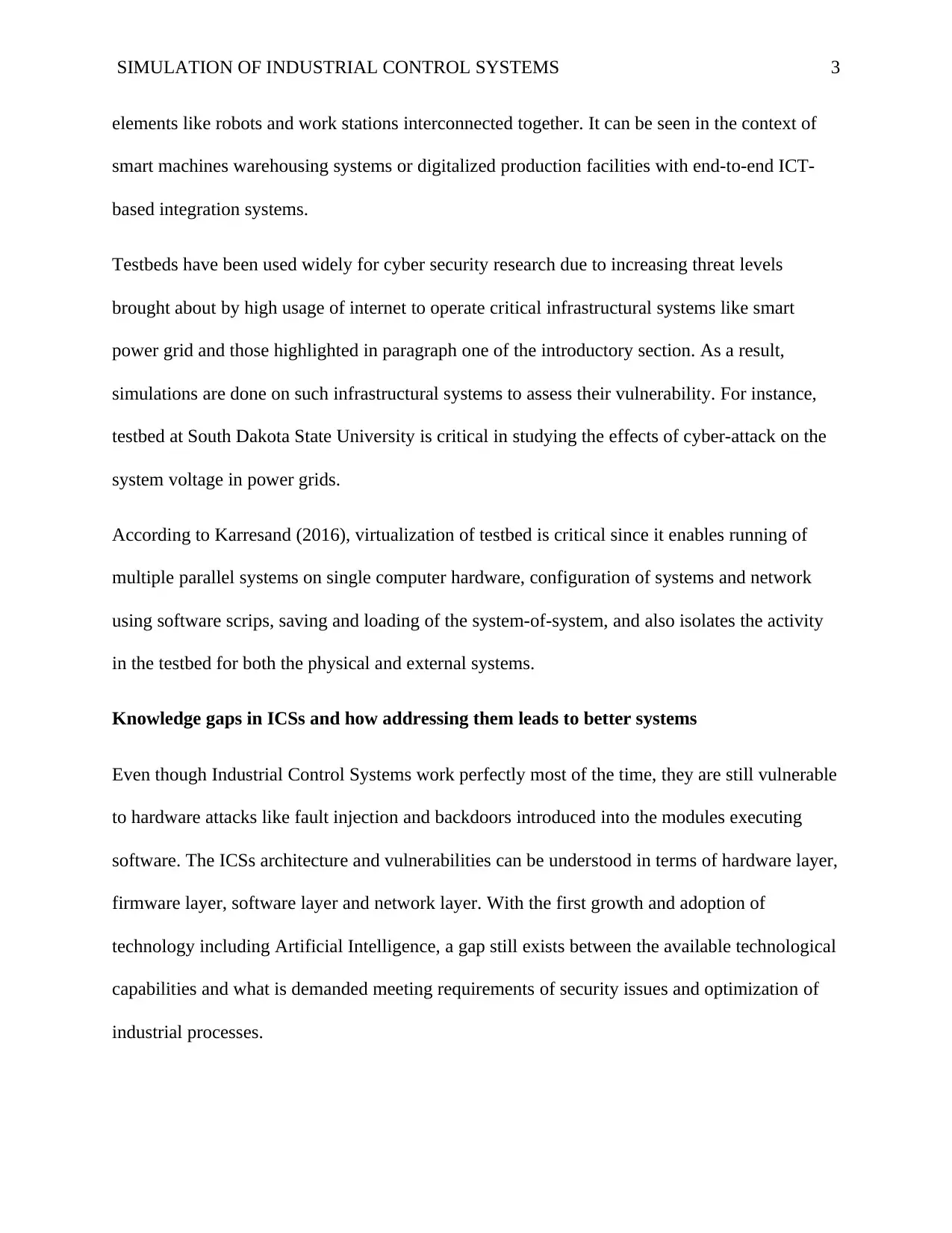

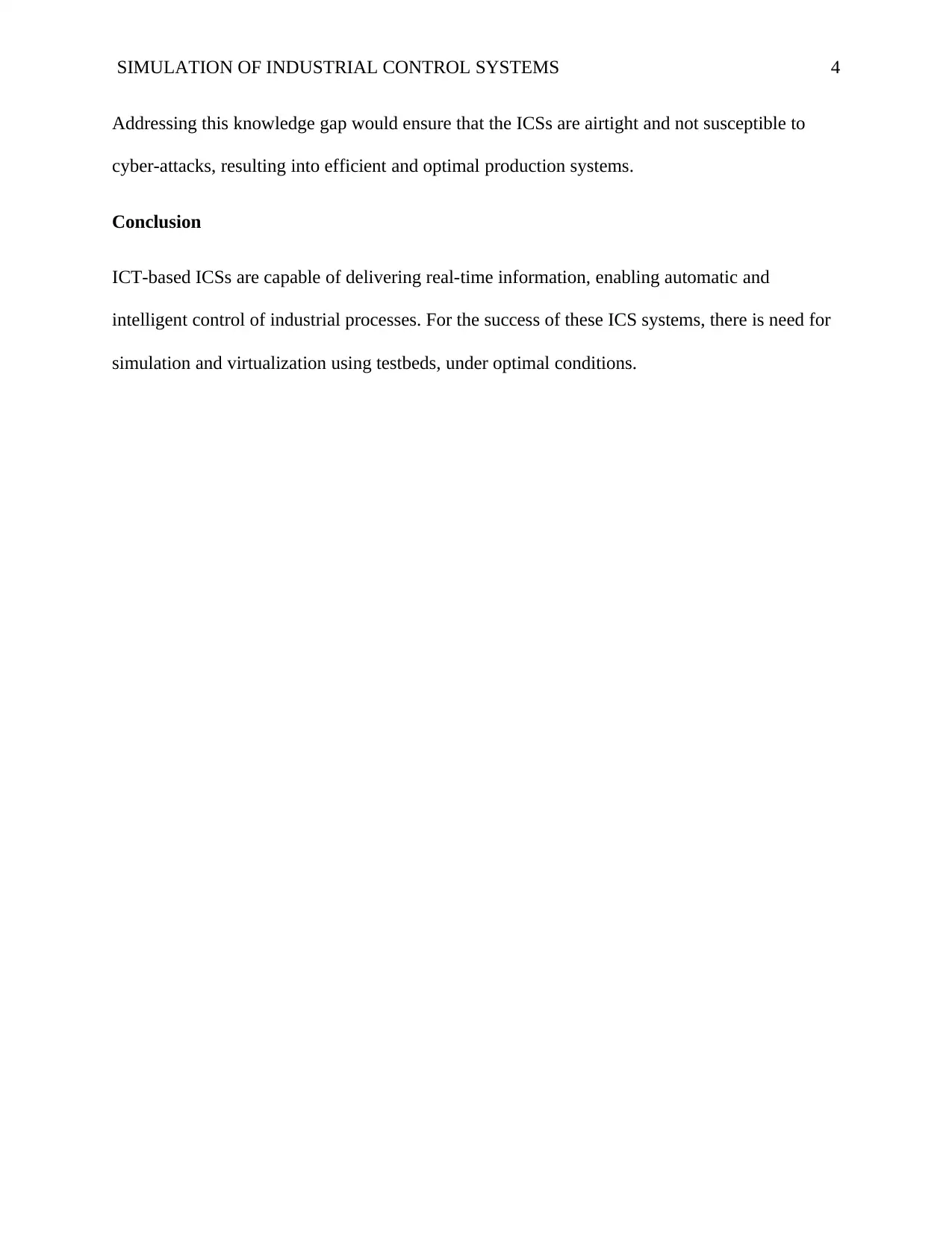
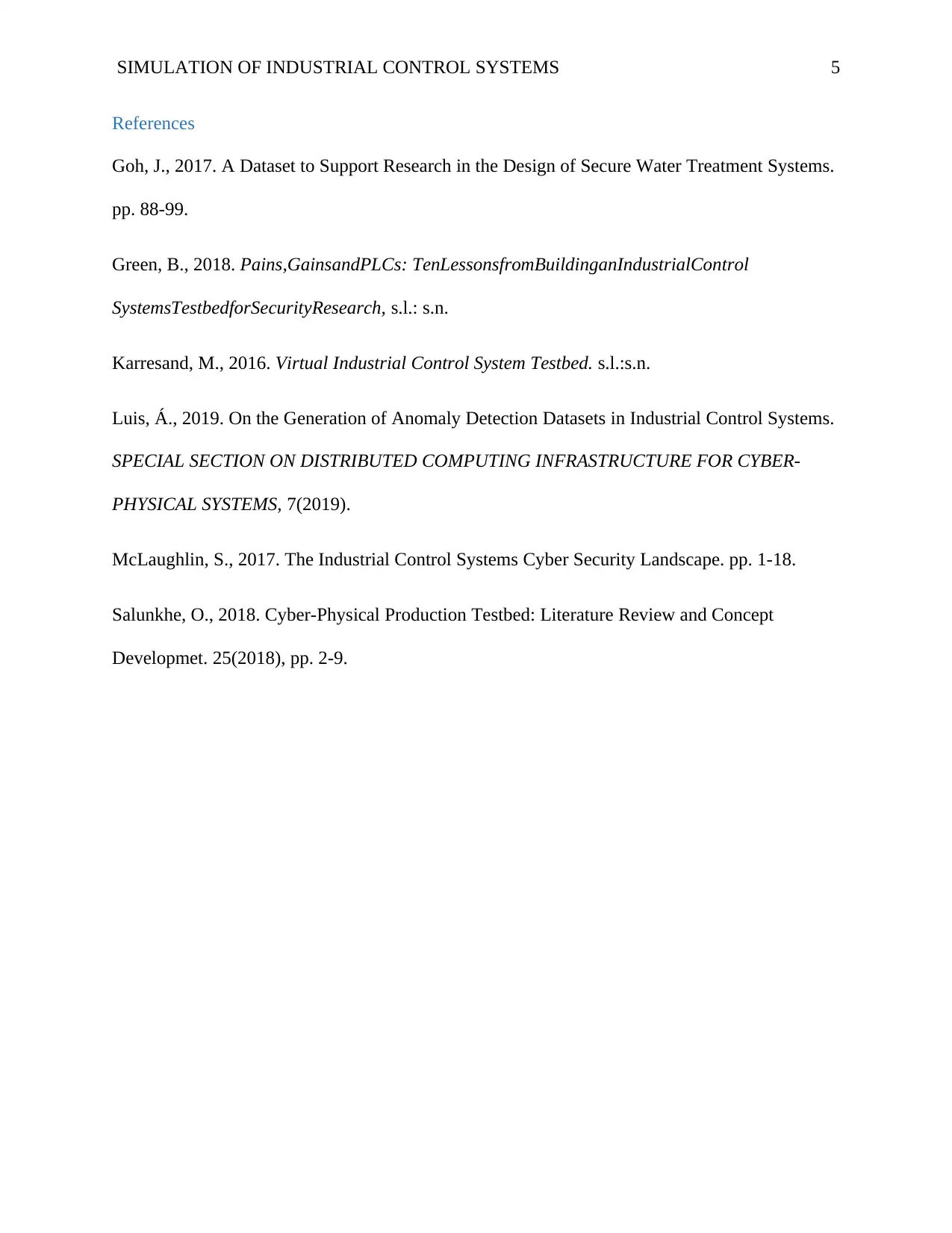





![[object Object]](/_next/static/media/star-bottom.7253800d.svg)